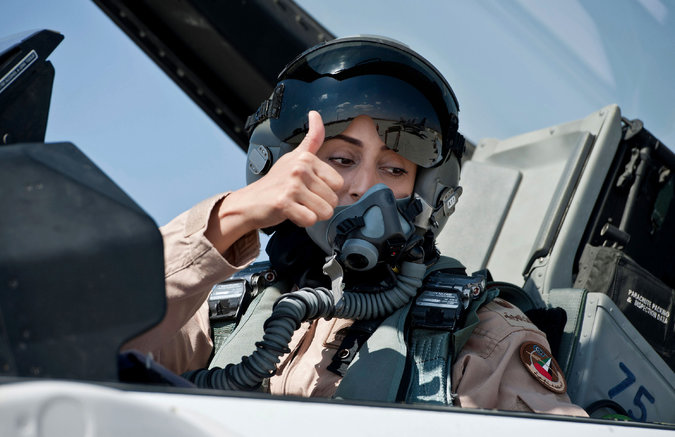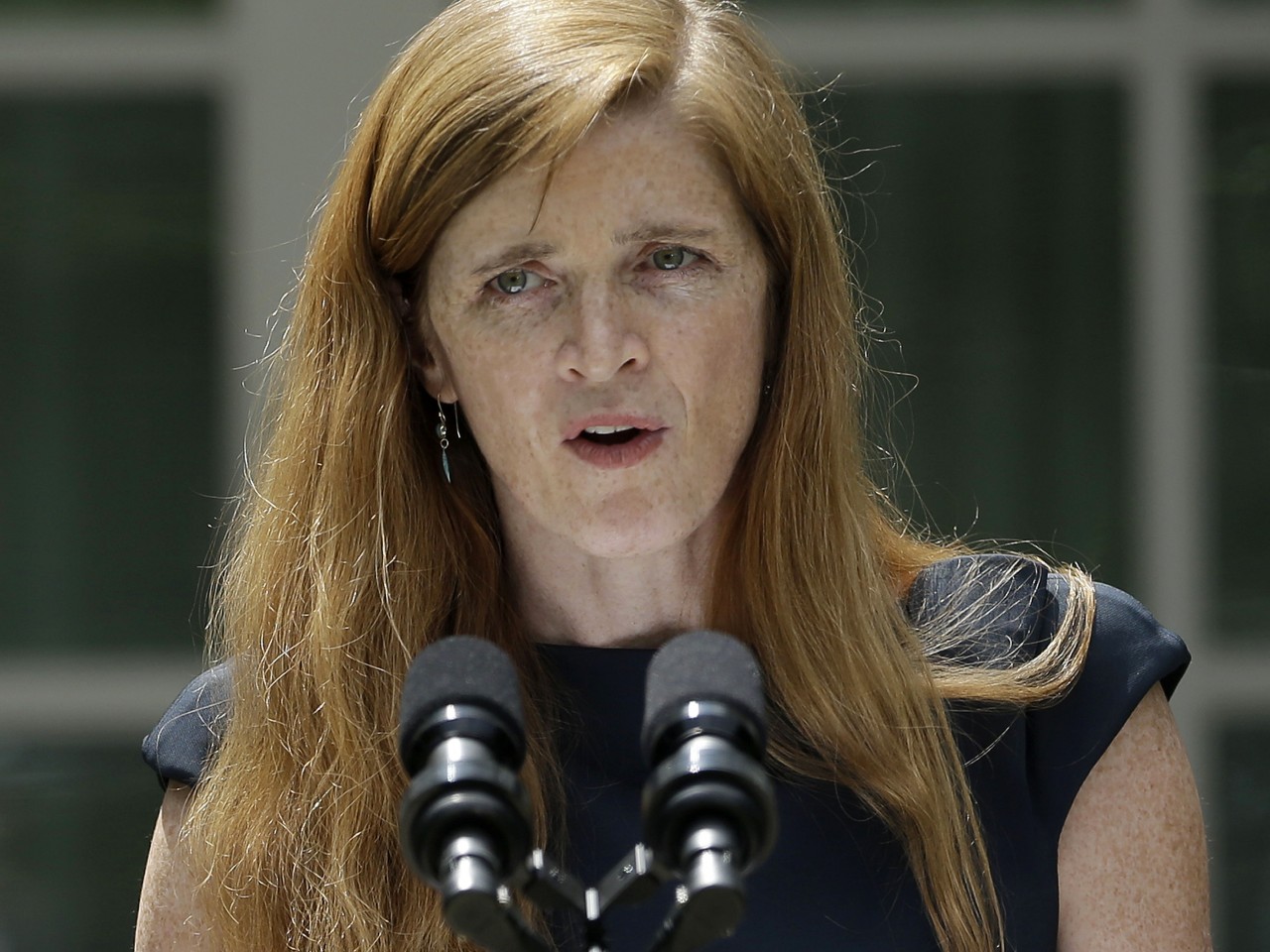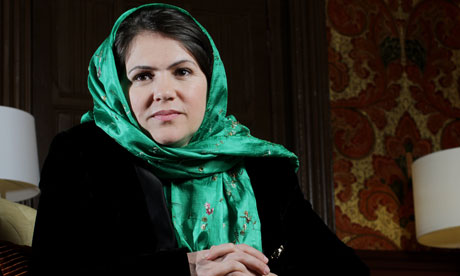Airstrikes conducted on September 23, 2014, against the Islamic State in Iraq and Syria (ISIS) were led by none other than United Arab Emirates’ first female air force pilot, Major Mariam Al-Mansouri. A veteran F-16 fighter jet pilot, Al-Mansouri successfully led the mission to attack ISIS-control territory alongside her male counterparts from Saudi Arabia, Jordan, Qatar and Bahrain.
The Abu Dhabi-born veteran had wanted to train with the air force since she was a teenager but at the time the Emirati Air Force was not accepting women. She enrolled in the air force soon after the ban on female recruits was lifted, graduating from Khalifa bin Zayed Air College in 2007, and becoming the nation’s first female air force pilot. Following her graduation however, Al-Mansouri was still faced with gender stereotypes, not uncommon for women choosing to pursue career paths in male-dominated industries.
Al-Mansouri had worked for the General Command for several years where her skills as a focused and detail-oriented pilot didn’t go unnoticed. She said that she did not receive special treatment because of her gender, explaining that “everybody is required to have the same high level of combat competence.” As the first women to fly in the UAE air force, Al-Mansouri spoke to women hoping to follow a similar career path, telling them to “be prepared as it is a time and effort-consuming field that requires a great deal of passion”.

While this story has taken social media by storm, it is also highlighting the various challenges that women face in conservative Islamic societies. In terms of gender equality, the UAE surpasses other nations such as Saudi Arabia where women are not allowed to drive, work or travel abroad without approval from a male relative.
Social reforms have brought women a long way, as many women in the UAE are slowly making the shift from the confines of their homes to an office environment. Other women are gravitating more towards a career in the army. Sheikha Fatima bint Mubarak, chairwoman of the General Women’s Unions, spoke of her delight over the increase in young Emirati women who are signing up for national service, saying “we have proudly been seeing young Emirati women thronging recruitment centres to join up and express their loyalty to, and love for, their country, and their readiness to sacrifice for the sake of their country and for protecting its sovereignty, achievements and gains.”
The progress made by women in the UAE is in stark contrast to the disadvantages facing women living in other parts of the Middle East, specifically in Syria and Iraq where ISIS-controlled regions enforce strict Sharia law. The women are forced to fully cover their bodies, and to remain within the confines of their homes, discouraged from obtaining an education or employment. On September 17, 2014, Iraqi lawyer and women’s rights activist Sameera Salih Ali al-Nuaimy, was kidnapped by ISIS forces after she posted comments on her Facebook page, criticizing the group for destroying religious sites in the city of Mosul. Nuaimy was subsequently tortured for days and publicly executed by a firing squad. These attacks on professional women are very common in ISIS-controlled regions, serving as a warning for those who may want to challenge them.
While Al-Mansouri’s position as a top air force pilot may indicate that progress with regards to female equality is slowly being made in the UAE, other nations, especially in ISIS-controlled regions, are moving backwards. If women like Sameera Salih Ali al-Nuaimy are unable to speak out and challenge social norms, then it is up to the West to condemn the violence and brutality which they face and to encourage women like Al-Mansouri for taking a major step forward in removing the social barriers within their patriarchal societies.




